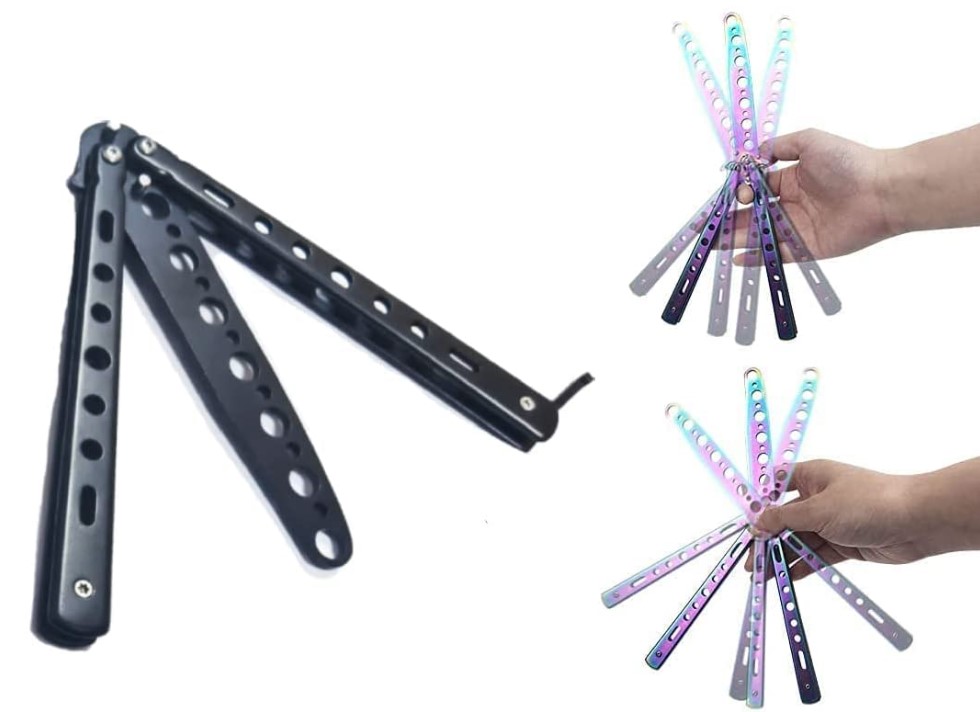Butterfly knives, also known as balisongs, are popular for their unique flipping mechanism and aesthetic appeal. However, their legality varies across countries and regions. In Quebec, as in the rest of Canada, butterfly knives are subject to strict legal restrictions under federal law.
This comprehensive guide explores the legal status of butterfly knives in Quebec, the implications for ownership, penalties for violations, and advice for knife enthusiasts to navigate these laws responsibly. Follow: self-defensetools.com!
1. Canadian Federal Laws on Butterfly Knives
In Canada, knife laws are governed at the federal level, meaning the rules apply uniformly across all provinces, including Quebec. Butterfly knives are explicitly regulated under the Criminal Code of Canada.
Definition of Prohibited Weapons
Butterfly knives are classified as prohibited weapons in Canada. According to the Criminal Code and accompanying regulations, a prohibited weapon includes any knife that:
- Opens automatically by gravity, centrifugal force, or the application of a button, spring, or similar device.
- Has a blade that folds into its handle and can be opened with one hand through flipping or centrifugal motion.
Butterfly knives meet this definition due to their flipping mechanism.
Legal Status
- Possession: Owning butterfly knives is illegal throughout Canada, including Quebec.
- Importation: Importing butterfly knives into Canada is prohibited. Customs authorities will seize such items if discovered.
- Sale and Distribution: Selling or distributing butterfly knives is also illegal under Canadian law.
2. Why Are Butterfly Knives Banned in Canada?
The prohibition of butterfly knives in Canada is rooted in concerns about public safety and their association with criminal activity.
Perceived Danger
Butterfly knives are considered dangerous due to their:
- Concealability: They can be easily hidden in pockets or clothing.
- Rapid Deployment: The flipping mechanism allows for quick access, which can be intimidating or harmful in conflicts.
Criminal Associations
Historically, butterfly knives have been linked to street violence and gang-related activities. Their ban aims to reduce their availability and misuse.
3. Penalties for Possession or Use of Butterfly Knives
Violating knife laws in Quebec or anywhere in Canada can lead to serious consequences.
A. Possession
- Being caught in possession of a butterfly knife is a criminal offense.
- Penalties include fines, confiscation of the weapon, and potentially a criminal record.
B. Importation
- Importing butterfly knives into Canada, even as a personal purchase, is illegal. Customs officials may confiscate the knife, and the individual could face additional penalties.
C. Use in Criminal Activities
- Using a butterfly knife in the commission of a crime significantly increases the severity of charges and penalties, including extended imprisonment.
4. Knife Laws in Quebec: Regional Enforcement
While knife laws in Canada are federally regulated, Quebec law enforcement agencies are responsible for enforcing these rules locally.
Public Carrying
- Carrying any knife, including non-prohibited types, in public spaces without a legitimate purpose can lead to scrutiny by law enforcement.
- Quebec’s public safety laws prioritize minimizing potential threats, and carrying knives without valid justification is strongly discouraged.
Cultural Context in Quebec
- Quebec, like the rest of Canada, emphasizes community safety and is proactive in preventing the misuse of weapons, including knives.

5. Alternatives for Knife Enthusiasts
If butterfly knives are not an option due to their prohibited status, knife enthusiasts can consider these legal alternatives:
A. Folding Knives
- Folding knives that do not open automatically or by centrifugal force are legal. These are suitable for practical uses like camping or daily tasks.
B. Fixed-Blade Knives
- Fixed-blade knives are also legal, provided they are not carried in a manner that suggests intent to harm.
C. Collectible Knives
- Non-prohibited collectible knives with unique designs can be a safer alternative for enthusiasts.
6. Advice for Knife Enthusiasts in Quebec
For those passionate about knives, adhering to the law is essential to avoid legal complications.
A. Educate Yourself
- Stay informed about Canadian and Quebec-specific knife laws to ensure compliance.
B. Avoid Purchasing Prohibited Knives
- Do not purchase butterfly knives, even online, as they may be seized during shipping or lead to legal issues.
C. Engage with Local Communities
- Join local knife enthusiast groups to learn about legal options and share your interest responsibly.
D. Seek Legal Guidance
- If you are uncertain about the legality of a specific knife, consult with a legal professional or contact local authorities.
7. Comparing Canadian Knife Laws Globally
Canada’s prohibition of butterfly knives aligns with the strict regulations seen in several other countries.
Countries with Similar Restrictions
- United Kingdom: Butterfly knives are classified as offensive weapons and are completely prohibited.
- Australia: Butterfly knives are banned as part of strict weapon control laws.
- Germany: Possession and sale of butterfly knives are illegal.
Countries with Lenient Laws
- United States: Laws regarding butterfly knives vary by state, with some states allowing their unrestricted use.
- Philippines: Butterfly knives, or balisongs, are widely permitted and culturally significant.
8. Conclusion
In Quebec, as in the rest of Canada, butterfly knives are classified as prohibited weapons under federal law. Possession, sale, and importation of these knives are illegal, with strict penalties for violations. For knife enthusiasts, exploring legal alternatives and understanding the regulations is essential to enjoy the hobby responsibly.
By staying informed and adhering to local laws, individuals can appreciate the craftsmanship and utility of knives without compromising public safety or facing legal consequences.
Related Posts: Are Butterfly Knives Illegal in France? Understanding French Knife Laws









